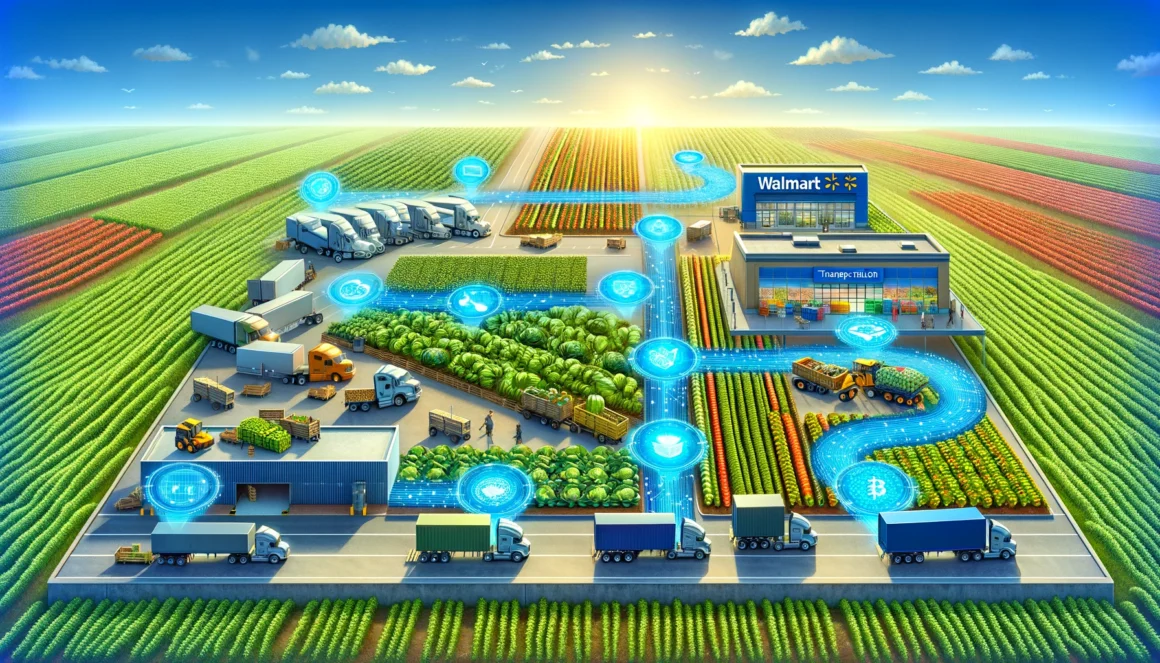Blockchain has become a revolutionary tool in the digital age, where transparency and reliability are essential to consumer trust. Defined as “an online digital ledger,” blockchain is a type of data storage that cannot be altered once the information has been recorded. Owing to its decentralized, immutable, and transparent nature, blockchain has proven highly useful for recording product provenance, which amounts to the chain of transactions and stages of manufacture a product went through. This article will explore in what ways blockchain technologies can be used outside of original cryptocurrency application and make supply chain management more effective.
Understanding Blockchain in Supply Chains
Blockchain is a decentralized, distributed digital ledger which records transactions across multiple computers. The technology constantly grows as it ensures that no record once entered in the database is ever altered. Supply Chains may greatly benefit from this technology as while goods pass throughout the world between manufacturers and consumers, every transaction or transfer is documented. This permanent history, available to all manufacturers, retailers, and even consumers, reduces fraud, manages recalls in a more timely manner, and even improves compliance and corporate responsibility.
Case Studies: Blockchain in Action
Walmart: Enhancing Food Safety
As a retail giant, Walmart has employed the blockchain technology to trace all the stages of the movement of food from its place of production to the shelf in the store. To achieve it, the company cooperates with IBM on its blockchain Food Trust project and can now trace the origin of every product it sells in a matter of seconds, while previously such data required several weeks to inspect. This is beneficial for isolating problematic batches of goods during health scares because the company can now perform these operations within hours, avoiding the waste of any other potentially safe products.
De Beers: Guaranteeing Diamond Authenticity
The company that does not need any presentation, De Beers, has also taken advantage of the blockchain technology, but in a significantly different way than Walmart. Its Tracr project allows the company to prove the origin of their diamonds is ethical and conflict-free, which is particularly required for the so-called “blood diamonds”. The platform serves as a reliable digital twin of the entire history of the diamond and is used by all the participants of the supply chain.
Maersk: Streamlining Shipping Processes
The world’s largest shipping company, Maersk, also teamed up with IBM to introduce their blockchain shipping solution, TradeLens, covering the entire spectrum of the global logistics ecosystem, from ports to custom offices to shippers. The company and their partners enjoy real-time access to all the required shipping-related data and documents, resulting in reduced transit times, lower costs, and more efficient inventory management practices.
Benefits of Blockchain in Supply Chains
- Increased transparency and traceability: the technology ensures a single source of truth every party can access. In addition to eliminating inefficiencies, having data on the supply chain can limit the opportunities for fraud.
- Enhanced security: blockchain is inherently secure as its consensus mechanism prevents tampering. Importantly, nodes encrypt their data, thereby making the exchange of information safe.
- Reduced costs: the technology provides a simpler way to handle transactions and makes them cheaper by eliminating intermediaries. Moreover, partners can reduce the volumes of paperwork and streamline administrative activities.
- Improved compliance: given the specifics, companies should find it easier to stick to all necessary standards.
Challenges and Future Prospects
Although there are numerous benefits to blockchain, its implementation comes with a series of challenges due to different reasons, such as the interfacing with the existing systems, blockchain posted in terms of scalability and need for comprehensive regulations that are designed to support them. As more industries are implementing and learning the exact advantages blockchain may provide, the future looks quite bright for the industry. The progress developed in furthering the overall scalability and the ability to interface with other blockchain technologies may allow it to become more common in other industries as well.
Conclusion
To sum up, blockchain technology has already become an essential asset in creating transparent, reliable, and traceable supply chains; moreover, it continues revolutionizing the modern world outside the finance industry. With its further evolution, blockchain will ultimately improve the way companies operate and ship products to anywhere in the world, making the global marketplace more transparent, efficient, and ethical.


